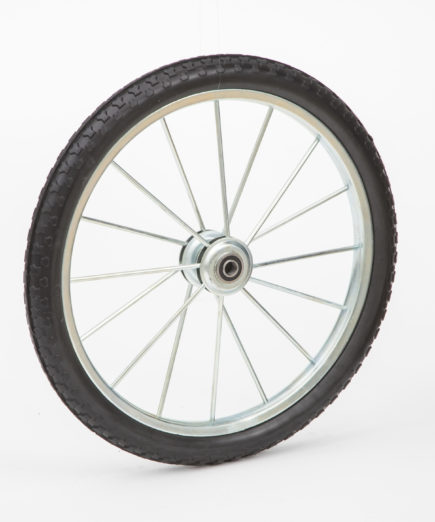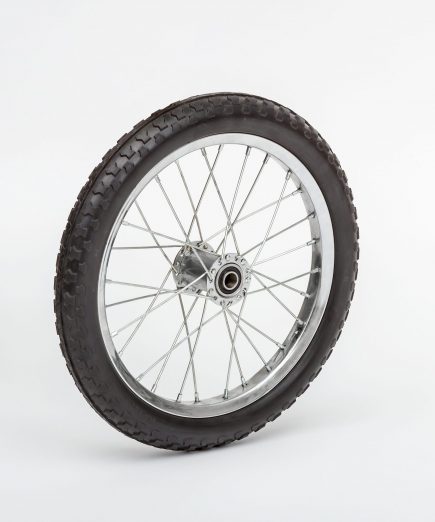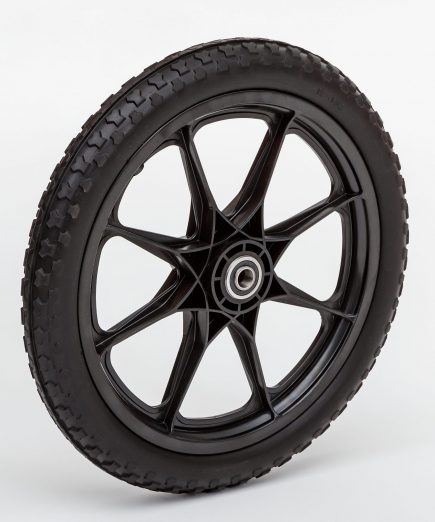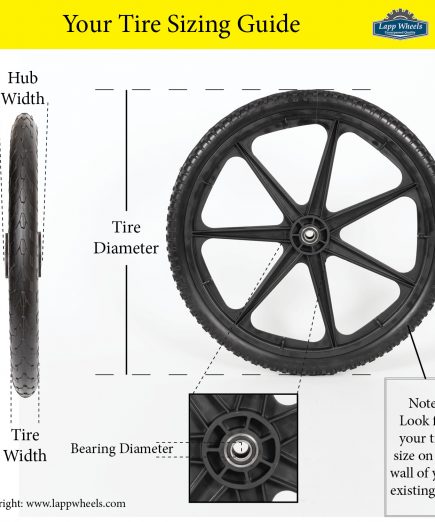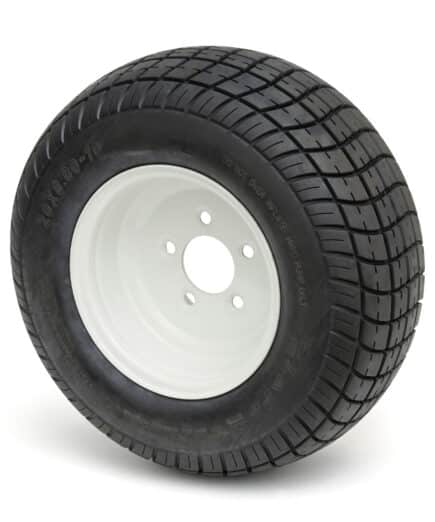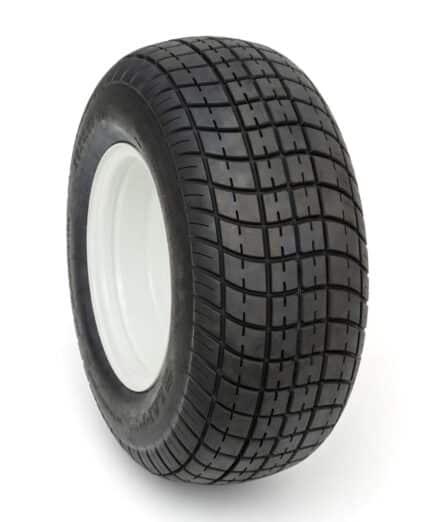Flat Free Spoke Wheels
Lapp Wheels 11″ to 24″ Flat Free and Pneumatic Plastic Spoke Wheel
Lawn & Garden Carts: Haul Smarter, Not Harder
Garden carts have long been indispensable tools for gardeners and landscapers, facilitating the efficient transport of materials across various terrains. Originating from simple wooden designs, these carts have evolved significantly over time. In the early 20th century, companies like Simplicity Manufacturing began producing walk-behind tractors and garden equipment, laying the groundwork for modern garden carts. Similarly, Antonio Pasin's introduction of the Radio Flyer wagon in 1927 showcased the potential of steel in cart manufacturing, combining durability with mass production techniques.
Today, garden carts are designed with user convenience and efficiency in mind. Modern iterations often feature sturdy steel or poly beds, pneumatic tires for smooth maneuverability, and ergonomic handles to reduce strain. Brands like Gorilla Carts have been at the forefront of this innovation, engineering products that cater to both amateur gardeners and professional landscapers.
Benefits and Uses of Garden Carts:
-
Efficient Material Transport: Garden carts are primarily used for transporting items around a garden or yard. Their design allows for the easy movement of heavy or bulky materials, such as soil, mulch, plants, and tools, reducing physical strain and saving time.
-
Versatility: Beyond gardening, these carts serve multiple purposes. They can be utilized for hauling firewood, moving equipment during outdoor projects, or even as mobile storage units during events.
-
Stability and Capacity: Unlike wheelbarrows, garden carts typically have four wheels, offering enhanced stability. This design allows them to carry heavier loads without the risk of tipping over, making them suitable for substantial gardening tasks.
-
Adaptability to Various Terrains: Equipped with durable wheels, many garden carts can navigate different terrains, from grassy lawns to uneven paths, ensuring that materials can be transported wherever needed.
Incorporating a garden cart into your gardening toolkit not only streamlines tasks but also enhances overall productivity and reduces physical exertion. Whether you're a hobbyist tending to a small garden or a professional landscaper managing extensive grounds, a reliable garden cart is an invaluable asset.
Lawn Cart Wheels FAQs
Garden carts typically have four wheels, providing greater stability and reducing the physical effort required to move loads. They are ideal for transporting heavy or bulky items over relatively smooth terrain. In contrast, wheelbarrows usually have one or two wheels, offering better maneuverability in tight spaces and on uneven ground.
Regular maintenance includes:
-
Cleaning: After each use, remove dirt and debris from the cart to prevent material buildup.
-
Lubrication: Periodically apply lubricant to the wheel axles to ensure smooth operation.
-
Inspection: Regularly check for signs of wear, rust, or damage, especially on the wheels and frame, and address any issues promptly.
Yes, many garden carts are designed to carry substantial weights. However, it's essential to check the manufacturer's specified weight capacity to ensure safe usage and prevent damage to the cart.
The choice of wheels depends on the intended use:
-
Pneumatic Tires: Filled with air, these tires provide a smoother ride on uneven terrain but may require regular inflation and maintenance.
-
Flat-Free Tires: Made of solid materials, these tires eliminate the risk of flats and are maintenance-free, though they might offer a firmer ride.
Yes, garden carts equipped with large, sturdy wheels, especially pneumatic tires, are better suited for navigating rough or uneven terrains. These wheels provide better shock absorption and stability.
To prevent flat tires:
-
Regular Inspection: Check for punctures, cracks, or embedded debris.
-
Proper Inflation: Maintain the recommended air pressure for pneumatic tires.
-
Consider Flat-Free Tires: If flats are a recurring issue, switching to flat-free tires can be a long-term solution.
Yes, wheels can typically be replaced. Ensure that the replacement wheels are compatible with your cart's axle size and weight capacity. Upgrading to flat-free tires is a popular option for reducing maintenance.
Yes, some garden carts are designed to be foldable, making them convenient for those with limited storage space. These carts are typically lightweight and suitable for light to moderate hauling tasks.
Consider the following:
-
Metal Carts: Generally more durable and capable of handling heavier loads but may be prone to rust if not properly maintained.
-
Plastic Carts: Lighter and resistant to rust but may not be as durable for heavy-duty tasks.
Your choice should depend on the nature and frequency of your gardening tasks.
Absolutely. Beyond gardening, these carts are versatile tools that can be used for tasks such as hauling firewood, transporting tools, moving outdoor furniture, or even as utility carts during outdoor events.


